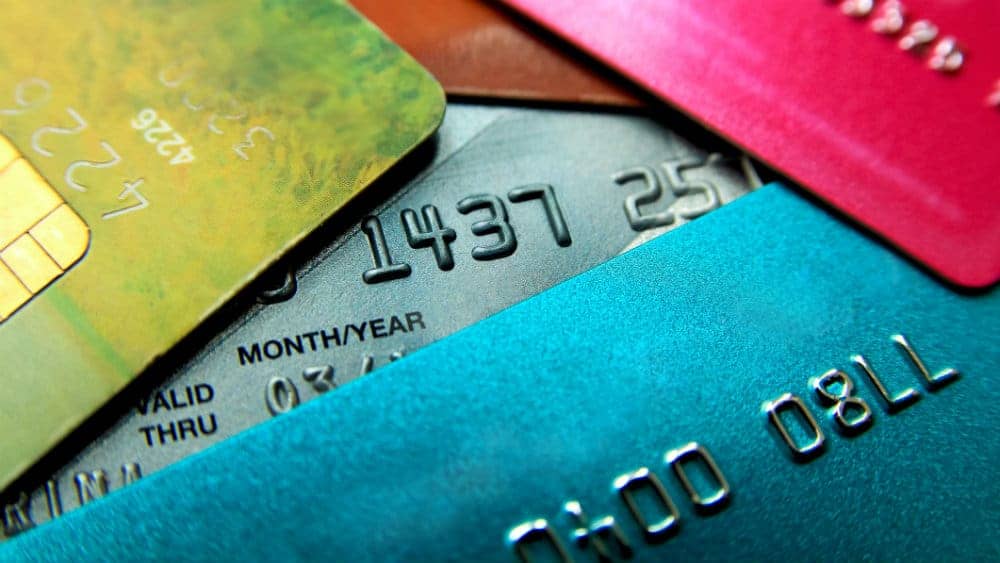A maxed-out credit card is one that has reached its credit limit. It happens to those of us who are not the most organised with our budgeting and spending habits.
It’s not a great idea to keep credit cards in a maxed-out state for long. In fact, it’s important to do something about it as soon as possible.
[top_pitch]
How easy is it to max out your credit cards?
The most obvious way for credit card balances to reach the limit is through overspending. This can be the result of regular overspending or one-off spending on a special occasion like a wedding. Overspending can happen suddenly, over a few weeks or months, or gradually creep up over a long time.
Without savings, many of us use a credit card when we encounter an unexpected expense, such as car repairs or a bill from the vet.
For those who can’t cover their monthly expenses through their income, credit cards can plug the gap. Unfortunately, this sometimes only makes things worse.
In some cases, you can max out a card because your credit limit is too low. However, it’s crucial to think carefully before asking for a higher limit. You may be able to afford extra borrowing now, but a change in circumstances could affect your ability to pay in future.
Why are maxed-out credit cards a problem?
First of all, a maxed-out credit card is not good because you can’t use it until you reduce the balance. Furthermore, if your balance exceeds the limit, then you will face a charge.
If you borrow all the available funds on your credit cards, the minimum payments alone could be too high. This is especially annoying if you are paying lots of interest on your purchases.
Borrowing up to the max on a credit card can also affect your credit score. Ideally, you should only borrow up to 30%, and no more than 50%, of your credit limit. Lenders will also be interested to know whether your overall debt to income ratio is acceptable, particularly if you are applying for a mortgage.
How can you get your credit card back in use?
High minimum payments on maxed-out credit cards can make it difficult to pay off the debt quickly, which can be very frustrating. Here are a few ways to get your credit card debts paid off as fast as possible, and avoid maxing them out again:
- Keep saving. It’s a good idea to build up an emergency fund so that you don’t need a credit card for unexpected expenses.
- Transfer the balance. If you are paying interest on your card, the first step is to transfer as much of the balance as you can to a 0% balance transfer credit card.
- Create a budget. Make savings in your monthly spending to put towards credit card debt and avoid the need to borrow more.
- Make extra money to throw at your credit card debt. Start a side hustle or work extra hours to help pay off the debt.
- Set up a direct debit that is more than the minimum payment each month.
- Use extra income whenever you can towards the debt.
- Don’t use the card again until the balance is well below 30% of the limit.
[middle_pitch]
What if you can’t afford the minimum payments?
Overspending on credit cards can result in monthly payments that exceed your budget, leading to a spiral of further borrowing in order to keep afloat.
Credit cards are not a priority debt, so it’s important to pay for essentials first. Credit card companies can help customers who are genuinely struggling, or in persistent debt, by:
- Offering a payment holiday
- Suggesting a payment plan
- Reducing the card’s interest rate
If you are unable to cover day-to-day expenses due to credit card debt, then it’s time to speak to an adviser about your options. They can help you create a budget and find a solution. Bear in mind that debt relief schemes can prevent further borrowing for up to six years and will affect your credit score.
It’s a good idea to deal with high credit card balances before you get to that stage, if possible. Once your credit record is poor, the only options are high APR credit cards for bad credit.
Can you change your credit card habits?
Grab your paper credit card statements, or find digital versions online. Looking in detail at your spending will give you a clue as to how you reached your credit limit in the first place. It could be recreational spending – eating out, shopping, travel and hobbies. Perhaps you use credit cards for essentials at the end of the month. If not, one major expense could have caused the problem.
Analysing your borrowing will help to change your borrowing habits and stop your credit cards from getting maxed out again.







